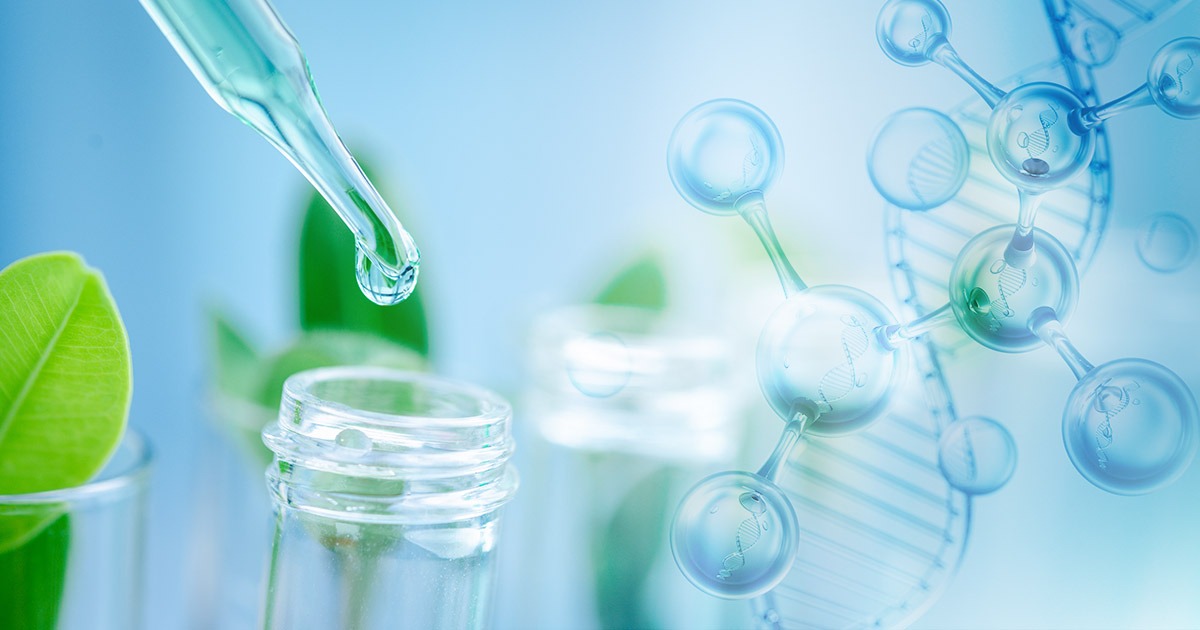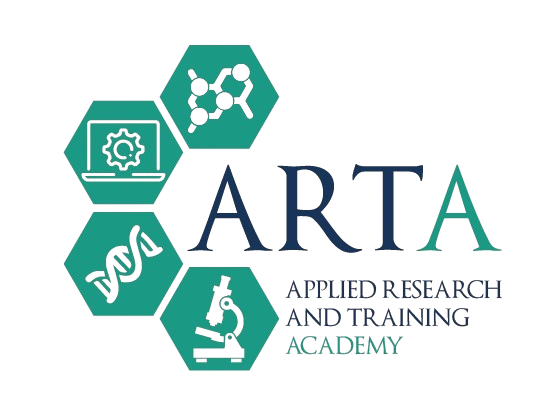Certificate
Application of Biotechnology and Phylogenesis in Drug Discovery and Development

Course Description
This course provides a comprehensive introduction to the scientific principles and experimental approaches that underpin research in cell culture and analytical chemistry, with specific emphasis on their applications in drug discovery and development.
The curriculum integrates theoretical knowledge with practical training, enabling participants to develop proficiency in the identification and characterization of molecules derived from plant extracts and in the assessment of their biological activity in vitro using diverse cell culture systems.
In addition to lectures and discussions, the course incorporates laboratory-based instruction, offering participants direct experience in relevant analytical and cell culture techniques.
Through this combination of theoretical and practical components, the course seeks to cultivate both conceptual understanding and technical competence, thereby preparing participants to contribute effectively to research initiatives in pharmaceutical sciences and related fields.
Entry Requirements
- A Bachelor’s degree (or equivalent qualification) in a relevant scientific discipline such as biology, biochemistry, chemistry, biotechnology, pharmacy, or related fields.
- A minimum of 1–2 years of professional experience in a laboratory or research setting (e.g., pharmaceutical, academic, industrial, or clinical laboratories).
- Familiarity with basic laboratory practices and safety protocols.
- Proficiency in English to ensure effective participation in lectures, discussions, and laboratory activities.
- Candidates without a formal degree but with substantial professional laboratory experience may also be considered on a case-by-case basis.
Target Audience
- Laboratory Managers, Supervisors, and Coordinators
- Laboratory Scientists and Research Associates
- Quality Control Analysts
- Research and Development Analysts
- Quality Assurance Officers
Course Structure and Delivery
The course is delivered through a combination of face-to-face lectures and supervised practical sessions, ensuring an integrated balance of theoretical knowledge and applied laboratory experience. The program is organized into three phases:
- Phase 1 (Weeks 1–6): 6 hours per week, comprising 3 hours of lectures and 3 hours of
supervised practicals. - Phase 2 (Weeks 7–14): 8 hours per week, comprising 4 hours of lectures and 4 hours of
supervised practicals.
Phase 3 (Weeks 15–16): Closure of the course with revision activities, consolidation of knowledge, and a summative assessment to evaluate participants’ theoretical understanding and practical competencies.
Course Structure and Delivery
- Module 1 – Fundamentals of Analytical Chemistry for Drug Discovery
- Module 2 – Extraction and Fractionation of Plant-Derived Molecules
- Module 3 – Molecular and Cell Biology Techniques in R&D
- Module 4 – Integration of Analytical and Biological Techniques
- Module 5 – Research and Development Practices
- Module 6 – Professional and Scientific Communication
- Module 7 – Assessment and Consolidation
Assessment & Certification
Participant performance will be evaluated through three summative assessments designed to measure both theoretical knowledge and applied laboratory skills:
- Assessment 1: Observed Practical (4 hours) Involves the observation of a set practical carried out in line with Standard Operating Procedures (SOPs). Pass mark: 35%
- Assessment 2: Written Assignment (approx. 4 hours) An individual assignment, requiring self-study and independent work outside lecture
hours. The assignment will take the form of a Laboratory Report, based on the process, analysis, and interpretation of results obtained from Assessment 1, as explained during lectures. This simulates industry-standard reporting and ensures the work is entirely authentic. Pass mark: 35% - Assessment 3: Invigilated Examination (2 hours) A competency-based examination comprising ten short-answer questions (approximately
100–200 words each). Pass mark: 30%
To successfully complete the award and be granted the certificate, students must achieve a minimum of 50% in each of the three assessments. Upon successful completion of all required assessments, participants will be granted by ARTA a Certificate of Participation. This certification formally recognizes both theoretical proficiency and demonstrated laboratory competence in the field of cell culture and analytical chemistry applied to drug discovery and development.
Course Intake Dates
January 2026 — Price: EUR 6000
Learning Outcomes
Through this course, participants will learn how various techniques emerging from different scientific fields including analytical chemistry, molecular biology, and cell biology can be utilised together in an applied R&D setting to advance nutraceutical and pharmaceutical product development.
Learners will, in particular, be able to:
Knowledge
- Explain the extraction process using plant material, including solvent selection, separation methods, and fractionation.
- Describe the theoretical principles behind advanced laboratory instrumentation (HPLC, GC MS, LC-MS/MS, UV-Vis and IR spectroscopy) used for molecular identification and characterization.
- Demonstrate knowledge of in vitro cell culture techniques and their role in investigating biological effects of bioactive molecules. – Understand molecular biological techniques, including Western Blot, ELISA, and Immunofluorescent assays, and their application in R&D. – Outline the R&D cycle from raw material through laboratory investigation to a finished marketable product.
- Recognize the importance of plant phylogenesis in the discovery and development of new drugs.
Skills
- Perform solvent extractions from biological material (plant tissue) and apply fractionation techniques to obtain and isolate molecules.
- Operate and apply laboratory instrumentation (HPLC, GC-MS, LC-MS/MS, UV-Vis, IR spectroscopy) to identify and characterise unknown compounds.
- Grow, maintain, and apply cell cultures for in vitro testing of biological effects of extracted compounds.
- Conduct molecular biology processes, including Western Blotting, ELISA, and Immunofluorescence, to assess cellular responses.
- Use relevant databases and computational tools to support identification and characterisation of chemical compounds in R&D projects.
- Compile and present data in the form of a Certificate of Analysis for a finished extract.
- Prepare professional laboratory reports, based on authentic experimental procedures and results, in line with industrial standards.
Competences
- Design and oversee extraction processes, including the evaluation of different solvents and conditions for optimal yield and purity.
- Make informed decisions on fractionation strategies and integrate chemical and biological testing to validate findings.
- Demonstrate competence in using state-of-the-art laboratory instrumentation and applying outputs to solve real-world R&D problems.
- Plan, manage, and execute an R&D project, considering timelines, milestones, and quality control requirements.
- Collaborate effectively within a multidisciplinary research team, demonstrating leadership, teamwork, and communication skills.
Judgment Skills and Critical Abilities
- Identify and troubleshoot problems in extraction, analysis, and cell culture processes.
- Critically assess laboratory evidence, choosing the most reliable solvents, methods, or biological assays for a given research question.
- Evaluate and interpret complex experimental data, linking chemical characterization with biological response.
- Conceptualise and apply laboratory experiments within the broader framework of product development.
- Exercise professional judgment in preparing Certificates of Analysis and in determining the market potential of finished products.
Learning to Learn Skills
- Analyse and critically use databases, methods, and literature sources to support identification and characterisation of unknown compounds.
- Demonstrate the ability to adapt and apply both biological and chemical methodologies to novel R&D contexts.
- Build capacity for continuous learning by reflecting on practical and theoretical outcomes in order to improve laboratory practice.
- Integrate knowledge from multiple scientific disciplines to address emerging challenges in drug discovery and nutraceutical research.
Key Information
- MQF/EQF Level: Not pegged/recognised by MFHEA
- ECTS: N/A
- Qualification/Certification Type: Certificate of Participation
- Course Duration: Part-time – 16 weeks
- Total Hours: 160 hours
o Contact hours (lectures/tutorials): 50 hours
o Practical sessions: 50 hours
o Self-study hours: 50 hours
o Assessment hours: 10 hours - Language of Instruction: English
- Target Audience: 21+ years
